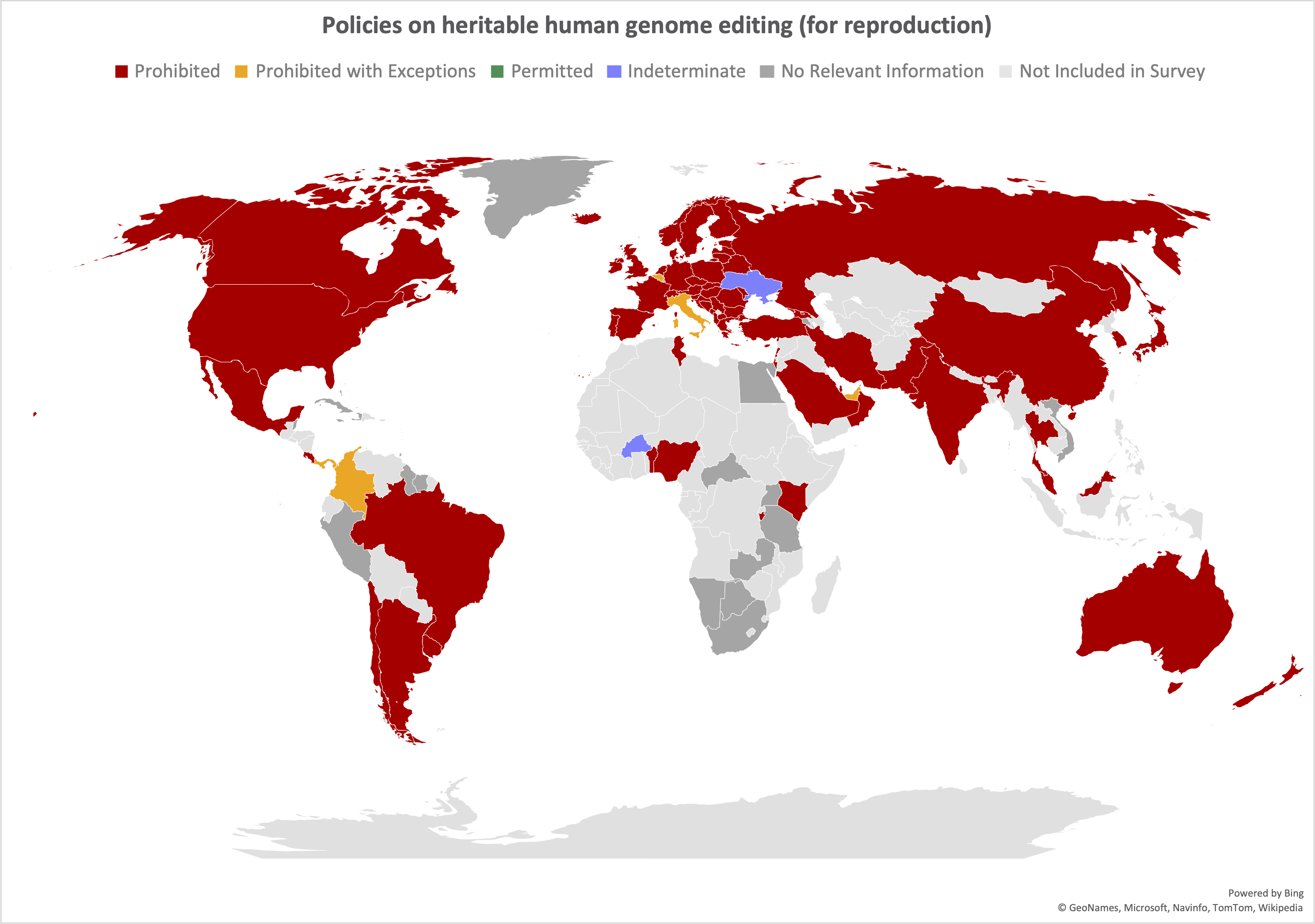New research shows that heritable genome editing is prohibited in most countries with relevant policies

New research just published in The CRISPR Journal finds that 70 countries categorically prohibit heritable human genome editing – procedures that would result in the birth of genetically modified children (so-called CRISPR babies). The results contrast with widespread underreporting of existing policies, as well as with claims that international cooperation would be unlikely on the issue of heritable genome editing for human reproduction.
The findings, from researchers at the Center for Genetics and Society (CGS) and Dalhousie University, are particularly important at a time when high-profile international committees are issuing global policy recommendations. Such committees have been convened by the World Health Organization, and by the U.S. National Academies of Sciences and Medicine in conjunction with the UK Royal Society.
“Given the high stakes of upcoming decisions about how to govern heritable human genome editing, a clear picture of the existing policy situation is urgently needed,” said Marcy Darnovsky, PhD, co-author and CGS executive director. “Seventy nations already have policies that put heritable human genome editing off limits. With such wide concurrence, a global agreement could be within reach.”
The researchers surveyed policies from 106 countries, more than half of the world’s nations, and found that 70 countries prohibit heritable genome editing, while an additional five prohibit it but allow for possible exceptions. The policies in the remaining countries either have no clear stance on the permissibility of heritable genome editing or are silent on the topic. No country explicitly permits it.
“It’s been frustrating to see how infrequently scholarly and public discussions acknowledge the large number of countries that prohibit heritable human genome editing,” noted Katie Hasson, PhD, co-author and CGS program director on genetic justice. “We took on this project to provide transparent assessments of existing policies in a broad range of countries. It was important to us to publish Open Access and provide our underlying data to make this information widely available to researchers, policymakers, and the public. We hope these findings will be taken up seriously in ongoing and future discussions.”
The policy landscape was much less clear for the related practice of human germline genome editing, in which early embryos, gametes, or gamete precursor cells are genetically modified for laboratory research but are not used to initiate a pregnancy. The majority of the countries surveyed (56) have no policies on its permissibility or impermissibility. Eleven countries explicitly permit it, twenty-three prohibit it (four of these allow exceptions), and six have indeterminate policies.
Full text of this Open Access article, “Human Germline and Heritable Genome Editing: The Global Policy Landscape,” by Françoise Baylis, Marcy Darnovsky, Katie Hasson, and Timothy M. Krahn, can be found in The CRISPR Journal, Vol. 3, Issue 5. The underlying data are available as Supplementary Materials on the journal’s website. As new information becomes available, the authors will provide updated tables, which can be found at https://tinyurl.com/HumanGenomeEditingPolicies.
For more information, please contact Dr. Darnovsky (darnovsky@geneticsandsociety.org) or Dr. Hasson (khasson@geneticsandsociety.org) or call (510)665-7760.
####
The Center for Genetics and Society is a non-profit public affairs and policy advocacy organization working to encourage responsible uses and effective societal governance of human genetic and reproductive biotechnologies.



